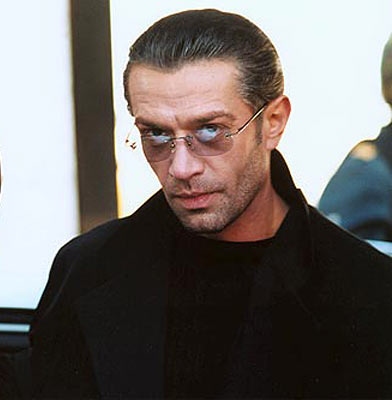Tycoon
 Monday, March 3, 2008 at 22:17
Monday, March 3, 2008 at 22:17  For many among us, outlaws will always be heroes. Not only because most people do not benefit from laws, regardless of the society in which these laws were created, but also because most people during their lifetime do not become fantastically rich, famous, or infamous. There is little glamour to the quiet, average (and often very good) life which many brave souls are content to pass but which few find inspiring. Throughout history we have hailed renegades, from Simon Magus to Robin Hood to Jesse James, to the gangsters and goons worshiped by current generations, as the triumph of the simple man over the elite, the rebellion of the downtrodden that halted the unending reign of supremely divine tyrants. Yet there is nothing bold or revolutionary about the luxurious wealth or hedonistic pursuits which this outlaw eventually flaunts. Once power has been attained, you will never find a more bourgeois, money-grubbing, rule-oriented manager, since now the laws protect him from, well, other potential revolutionaries. He is self–serving to the point of justifying his actions by claiming he alone was strong enough to stand up to the authorities and bring them to their knees. And he will use every legal stipulation and wile to keep his property and influence from the hungry masses whom he invariably shuns. Since the last twenty years in Russia have seen the mercurial rise of more than one such individual it may be a fine time, on the occasion of the Russian elections, to review this film.
For many among us, outlaws will always be heroes. Not only because most people do not benefit from laws, regardless of the society in which these laws were created, but also because most people during their lifetime do not become fantastically rich, famous, or infamous. There is little glamour to the quiet, average (and often very good) life which many brave souls are content to pass but which few find inspiring. Throughout history we have hailed renegades, from Simon Magus to Robin Hood to Jesse James, to the gangsters and goons worshiped by current generations, as the triumph of the simple man over the elite, the rebellion of the downtrodden that halted the unending reign of supremely divine tyrants. Yet there is nothing bold or revolutionary about the luxurious wealth or hedonistic pursuits which this outlaw eventually flaunts. Once power has been attained, you will never find a more bourgeois, money-grubbing, rule-oriented manager, since now the laws protect him from, well, other potential revolutionaries. He is self–serving to the point of justifying his actions by claiming he alone was strong enough to stand up to the authorities and bring them to their knees. And he will use every legal stipulation and wile to keep his property and influence from the hungry masses whom he invariably shuns. Since the last twenty years in Russia have seen the mercurial rise of more than one such individual it may be a fine time, on the occasion of the Russian elections, to review this film.The fictional Platon is a master of disguise, mood, and manipulation, as would be, we surmise, anyone moving in such dark and dangerous circles. He emerges from this maelstrom in one piece thanks in no small part to his charisma, played up fabulously by Mashkov, a handsome and talented actor who exudes what one reviewer calls “reptilian charm” (there is no better description). Detailing the plot might dissuade you from seeing the film, so I’ll just say that events do not unravel chronologically and, despite some half-hearted attempts, Platon’s love life remains secondary to his financial profile. Nevertheless, the political implications of his rise to prominence and its rather minor subplots are not nearly as interesting as Platon’s own maneuvering, inevitable betrayal, and apotheosis – a story which, in the end, should sound extremely familiar. Are the characters three-dimensional? No, and for a very good reason: although one-man shows sometimes feature guest performers, these sidekicks only get billing far from the center and in very small print. Tycoon is a upsized, occasionally preposterous tribute to one and only one of those magnates; everyone else is only important insofar as they help him achieve his goal.
Unfortunately, nothing co-opts the spry and creative mind more than monetary success. Even the wildest of imaginations considers, at least for a few moments, the life of material wealth and the ease and comfort such a life brings. There is nothing wrong with ambition, nor with money per se; but when the goal of life and work and all your hours and minutes becomes a relentless hunt after greater and greater fortune, perspective on life’s best offerings is soon lost. What Platon’s perspective is on the matter may be hard to say, because one gets the distinct impression that he really thinks of himself as some kind of artist. And what you think of this tycoon, an oligarch in the original Russian, may reflect what you think of the new Russian revolution. But then you may think of other riches – a live filled with goodness, love, laughter, curiosity, learning, and selflessness – and smile. And you may gladly cede those outlaw desires to the Platon Makovskys and Charles Foster Kanes of the world.
* Note: Berezovsky ostensibly took his own life on March 23, 2013.

Reader Comments